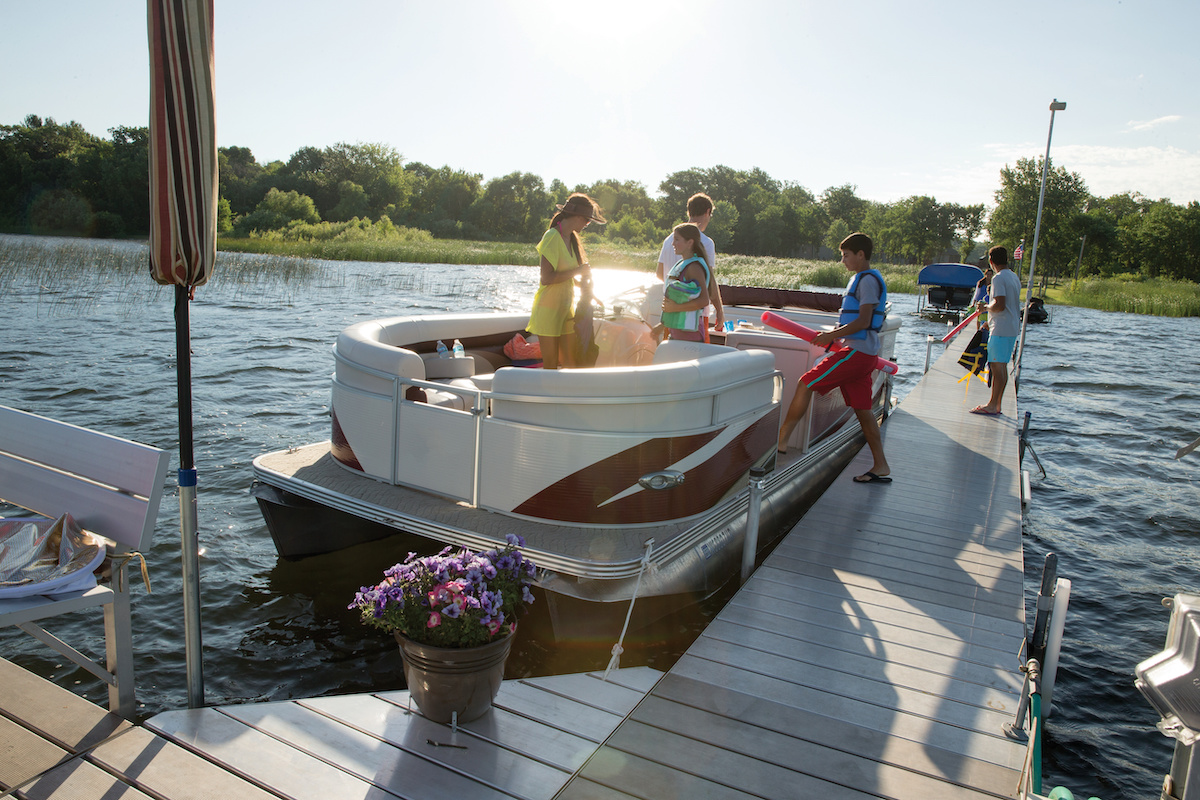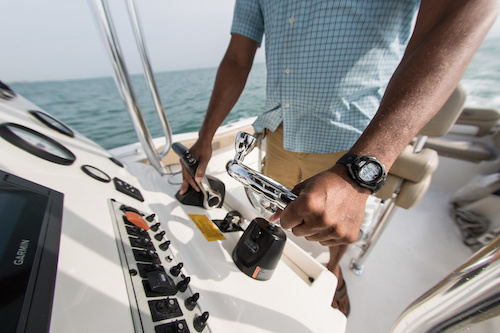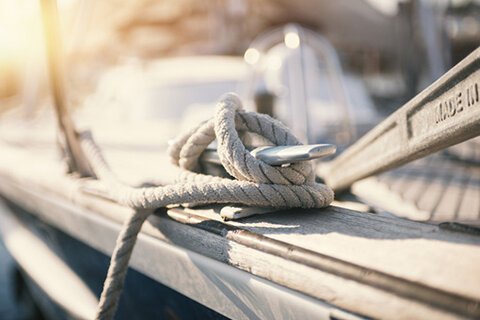Ready to join the fun on the water? Buying a boat, whether new or pre-owned, is the first step. But there are a few details to consider before you turn the key. For all you first time boat owners out there, follow these simple steps to help ease into ownership.
First-Time Boat Owner Checklist
- Secure boat insurance.
- Learn how to trailer your boat.
- Learn how to launch and retrieve your boat.
- Determine where you will store your boat.
- Understand basic maintenance requirements.
- Stock your boat with the proper equipment.
- Follow a pre-departure checklist.
- Master basic on-the-water operating skills.
- Always practice safe and responsibly boating.
- Enjoy your new boat!
Insuring Your Boat
You need to insure your boat, both for liability and for damage to the boat, and in that regard boat insurance is similar to a policy that covers your automobile. But there are some types of coverage that are specific to boats. For example, a policy with specific fuel-spill liability protects you from clean-up claims or third-party damage caused by the accidental discharge of oil or fuel, if you boat were to sink in a marina. If you have an accident while towing, your boat policy pays to repair or replace the trailer. If your trailer causes injuries to people or damage to property your auto policy should cover the liability. Check both policies to make sure you are covered. Other factors to consider are special requirements for boats in hurricane zones, and boats leaving U.S. waters.
To learn more, read Insuring Your Boat.
Trailering Your Boat
Trailering you boat makes it possible to visit new bodies of water, but for many new boat owners towing safely requires another new skill set that is part of boat ownership. The first item to check is that your tow vehicle is rated to tow the boat you will buy. Check the vehicle owner’s manual carefully to find the maximum tow rating, and the Gross Combined Vehicle Rating (GCVR), which is the weight of the tow vehicle and the boat and trailer; and that weight should include the weight of boat fuel, water and gear. Don’t buy a boat only to discover you’ll need a new truck to tow it.
For more information on towing, visit our Boat Towing & Trailering guide.
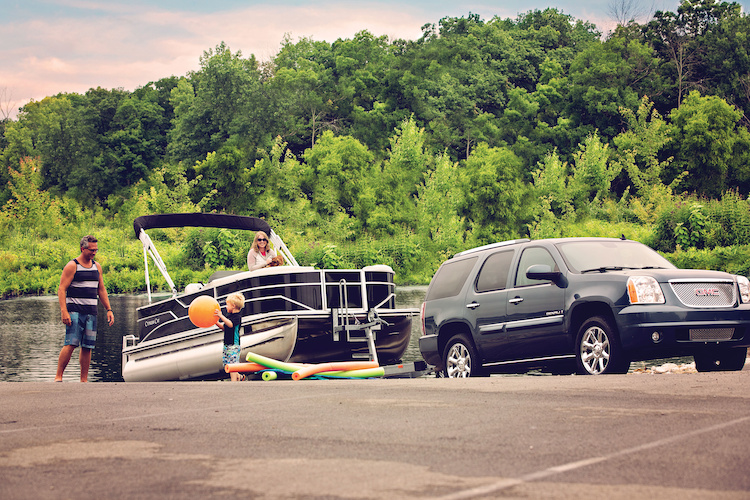
Launching & Retrieving
The boat launch ramp has its own etiquette, developed to keep things moving smoothly even on the busiest weekend morning. Knowing the drill will help you keep your stress level down and get your day on the water off to a great start.
For tips on backing down the ramp and launching check out How to Launch a Boat. And remember: practice makes perfect.
Boat Storage
You might store your new boat on its trailer, but where will you park it? Not all communities permit boats to be parked-long-term in a residential driveway. Will your boat trailer fit in your garage? Maybe you need a trailer with a swing-away tongue. There are many other boat-storage options, from a dry stack valet service to mooring in a marina.
For ideas on storage go to Boat Storage: What Are My Options?
Basic Boat Maintenance
Powerboats and personal watercrafts (PWCs) will require at least annual basic engine maintenance, usually an oil and filter change and a fuel filter change, a change of gearcase lubricant, and perhaps propeller inspection. If you live in a cold climate the boat will need to be “winterized” for off-season storage.
Learn more in our Maintenance guide.
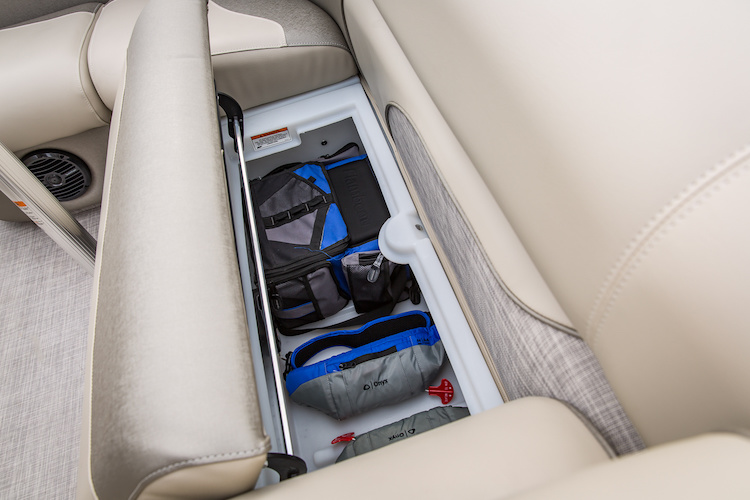
Basic Equipment
Of course, you’ll need a life jacket (also called a personal flotation device, or PFD) for every person onboard, but what other items are you required to keep on the vessel? Check out our Boat Safety Checklist & Safety Equipment. There are other items that often are not part of a new-boat purchase, including dock lines, and fenders to protect the side of the boat when it’s docked.
Departure Checklist
A pilot always files a flight plan before takeoff. You should file a “float plan” with family or friends ashore before heading out for the day, just so someone knows where you are headed and when you expect to return. Check out our Pre-Departure Checklist for more “pre-float” ideas designed to help make your day on the water safe and enjoyable.
Fueling
Gas gauge getting low? It’s time to re-fuel your boat, which presents two areas of concern. The first is putting the correct fuel in your boat. Consult your owner's manual for any fuel octane requirements, and note especially that marine engines may not use motor fuel with more than 10 percent ethanol (E10).
To learn more about issues with ethanol and marine engines, go to Choosing the Right Fuel and Oil for your Marine Engine. You’ll also want to refuel while avoiding spills, even a few drops. Learn more by reading Clean Boating: Best Practices for Boaters.
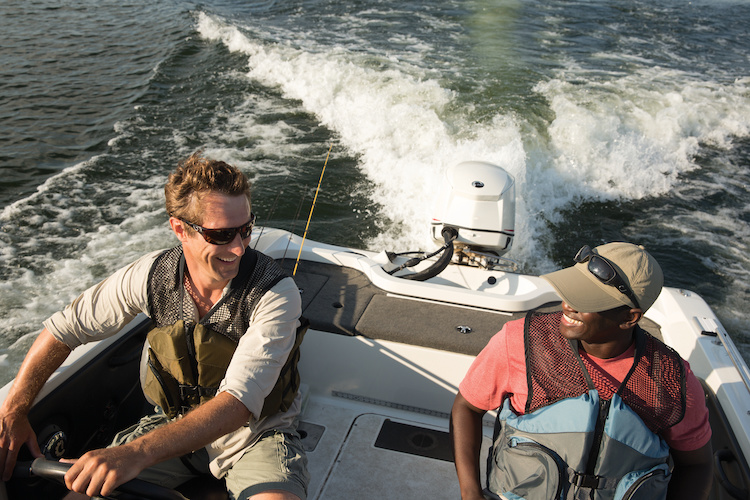
Operating Your Boat
If you buy a new boat, a good dealer should give you a thorough walk-through of the boat to show you how all the systems work. Some dealers will even take you out on the water for a demonstration run. But there’s more to operating a boat than knowing how to start the engine and steer the wheel.
Get a solid foundation on boat handling and docking, rules of the road and navigation by taking a boating education or safety course, as offered by your state or through one of the resources listed on How to Get a Boating License.
Safe & Responsible Boating
Safe boating is always fun boating for everyone. Consider taking a boating safety and education course such as those offered by the United States Coast Guard Auxiliary or by your state or local authorities.
Learn more by visiting our Safe Boating guide.
Enjoying Your Boat
You’ve got your boat, and all of your gear. You’ve launched and are head away from shore…now what? There are dozens of ways to make the most of your time on the water—fishing, tubing, skiing and boarding, diving, cruising and camping. Or just drop the anchor in a secluded cove and hang out. The trick is to fit boating to your lifestyle, whether you’re a single with friends, a family, or just looking for a little peace and quiet. A boat a great way to get there.
Read Next: 10 Fun Things to Do on a Boat
First Time Boat Owners FAQs
What should I keep in my boat?
Check out our Boat Safety Checklist & Safety Equipment guide.
What is a pre-departure checklist?
It’s a quick list of gear, safety and comfort items you want to make sure you have on board before you cast off for the day. Our Pre-Departure Checklist has good information for all boaters.
What should I take on a boat for a day?
This Boat Safety Checklist & Safety Equipment and the Pre-Departure Checklist have you covered.
Where do I store my boat?
That depends on the size of your boat, your circumstance, and how you want to use the boat. For ideas on storage, go to Boat Storage: What Are My Options?
What type of vehicle do I need to tow my boat?
The two vehicle needs to match the size and weight of the boat and trailer, and the terrain you plan to cover. For more information on towing, go to Boat Towing & Trailering.
What happens if my boat breaks down?
The average towing fee in the U.S. is about $700, according to BoatUS, and many boat insurance policies today offer some kind of on-water towing endorsement. Know the details of that coverage.
